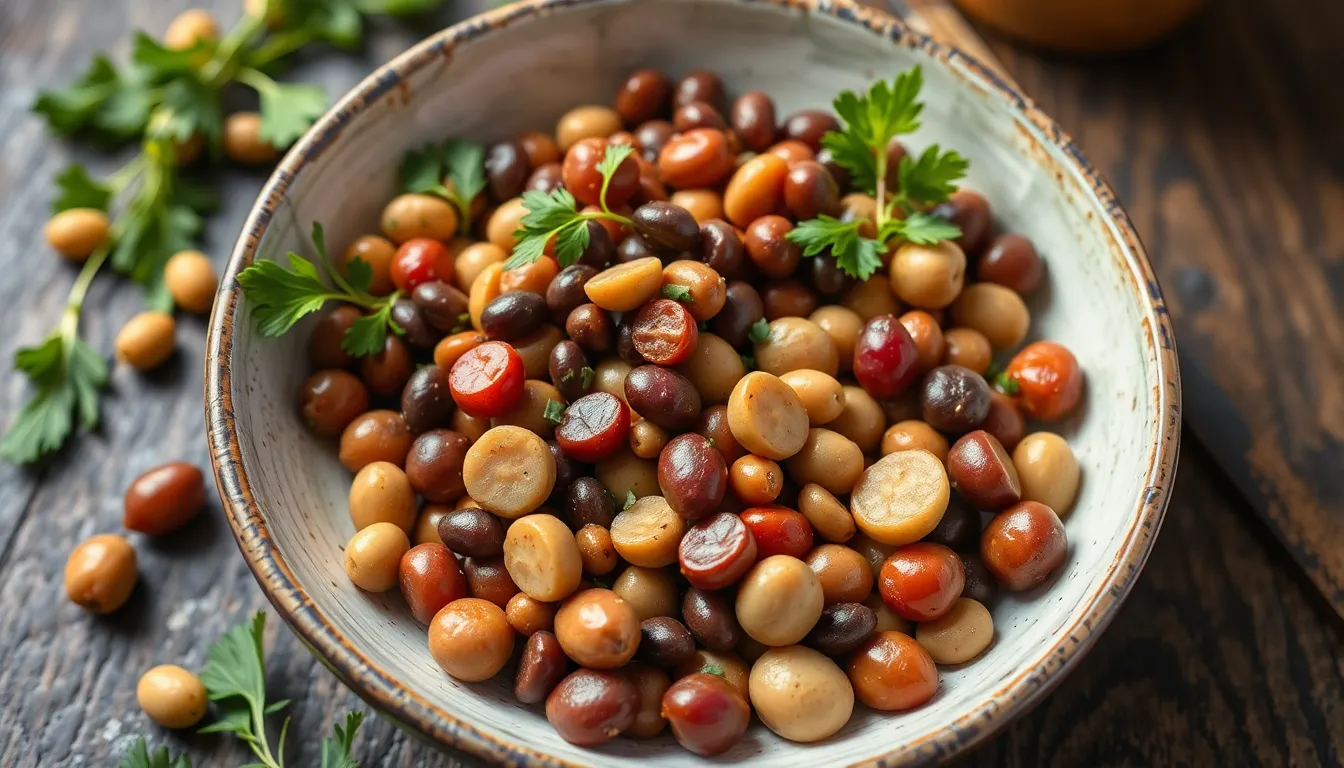The Power of Seeds: Unlocking Nutritional Benefits for Your Health
I. Introduction
In our quest for health and wellness, we often overlook the small wonders of the natural world—seeds. These tiny powerhouses are packed with nutrients and offer a multitude of health benefits that can enhance our overall well-being. From ancient civilizations to modern dietary practices, seeds have played a crucial role in human nutrition.
Seeds are not just a means of plant reproduction; they are also a rich source of essential nutrients that are vital for maintaining a balanced diet. Packed with protein, healthy fats, fiber, vitamins, and minerals, seeds are an indispensable addition to any healthy eating pattern.
The purpose of this article is to delve deeper into the various types of seeds commonly consumed, their nutritional profiles, and the myriad of health benefits they provide. Join me on this journey as we unlock the power of seeds!
II. Understanding Seeds
A. Definition of seeds
Seeds are the reproductive units of flowering plants, capable of developing into another such plant. From a nutritional standpoint, they are the embryonic stage of a plant, containing all the essential components needed for growth.
B. Types of seeds commonly consumed
Several types of seeds are widely consumed around the world, each bringing its unique flavor, texture, and nutritional benefits. Here are some of the most popular seeds:
- Flaxseeds
- Chia seeds
- Pumpkin seeds
- Sunflower seeds
- Sesame seeds
III. Nutritional Benefits of Seeds
A. Rich source of essential nutrients
Seeds are nutrient-dense foods that provide a range of essential nutrients necessary for optimal health. Here are some of the critical nutrients found in seeds:
1. Protein
Seeds are an excellent plant-based source of protein, making them a great addition to vegetarian and vegan diets. They provide essential amino acids that are necessary for muscle repair and growth.
2. Healthy fats (Omega-3 and Omega-6)
Many seeds are rich in healthy fats, particularly omega-3 and omega-6 fatty acids, which are crucial for heart health and reducing inflammation in the body.
3. Fiber
The high fiber content in seeds aids in digestion, helps regulate blood sugar levels, and promotes a feeling of fullness, which can assist in weight management.
4. Vitamins and minerals
Seeds are also a rich source of various essential vitamins and minerals, including:
- Calcium
- Magnesium
- Iron
- Zinc
- Vitamin E
B. Antioxidant properties
Seeds are packed with antioxidants, which help combat oxidative stress in the body. Antioxidants protect our cells from damage caused by free radicals, potentially lowering the risk of chronic diseases.
C. Role in heart health
Incorporating seeds into your diet can have a positive impact on heart health. The heart-healthy fats, fiber, and various antioxidants found in seeds contribute to reduced cholesterol levels, improved blood circulation, and lower blood pressure.
D. Impact on digestion
The fiber content in seeds promotes healthy digestion. It aids in regular bowel movements and can prevent constipation. Furthermore, certain seeds help support a healthy gut microbiome, contributing to overall digestive wellness.
Nutritional Comparison of Popular Seeds
| Seed Type | Protein (g) | Fiber (g) | Healthy Fats (g) | Key Vitamins/Minerals |
|---|---|---|---|---|
| Flaxseeds | 5.2 | 27.3 | 42.2 | Omega-3, Magnesium, Manganese |
| Chia Seeds | 4.7 | 34.4 | 30.7 | Omega-3, Calcium, Iron |
| Pumpkin Seeds | 30.2 | 18.4 | 19.4 | Magnesium, Zinc, Iron |
| Sunflower Seeds | 21.0 | 8.6 | 51.5 | Vitamin E, Selenium, Magnesium |
| Sesame Seeds | 17.0 | 11.8 | 49.7 | Calcium, Iron, Magnesium |
IV. How to Incorporate Seeds into Your Diet
Now that we understand the nutritional benefits of seeds, let’s explore some practical ways to incorporate them into our daily meals:
A. Add to Smoothies
Blend a tablespoon of chia or flaxseeds into your morning smoothie for added nutrition and texture.
B. Sprinkle on Salads
Enhance your salads by sprinkling pumpkin or sunflower seeds on top for a delightful crunch.
C. Use in Baking
Incorporate ground flaxseeds or sesame seeds into your baking recipes, such as muffins or bread, to add nutritional value.
D. Create Seed-Based Snacks
Make your own energy bars or trail mix using a blend of seeds, nuts, and dried fruits for a quick and healthy snack.
E. Top Your Yogurt or Oatmeal
Add a handful of seeds to your yogurt or oatmeal for an extra boost of protein and fiber.
V. Conclusion
Seeds are truly nature’s small wonders, offering a wealth of nutritional benefits that can enhance our health and well-being. By incorporating a variety of seeds into our diets, we can take advantage of their rich nutrient profiles, antioxidant properties, and heart-healthy benefits.
Whether you choose to sprinkle them on salads, blend them into smoothies, or bake them into your favorite recipes, seeds are a versatile ingredient that can easily fit into any meal. So, let’s embrace the power of seeds and unlock their potential for a healthier future!




